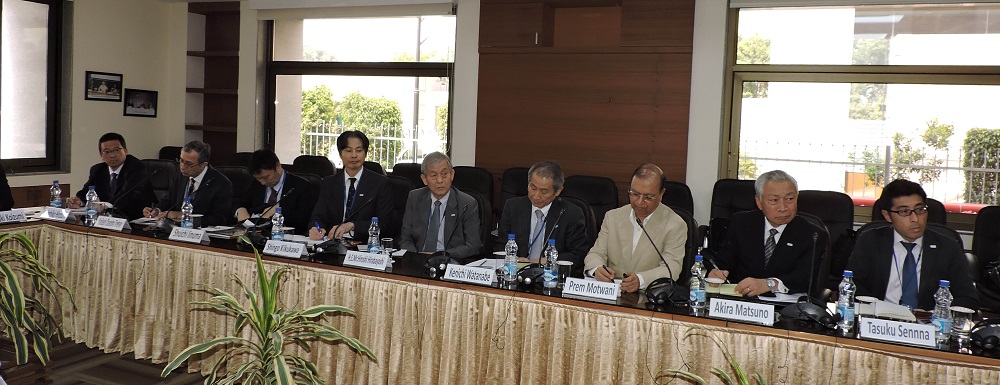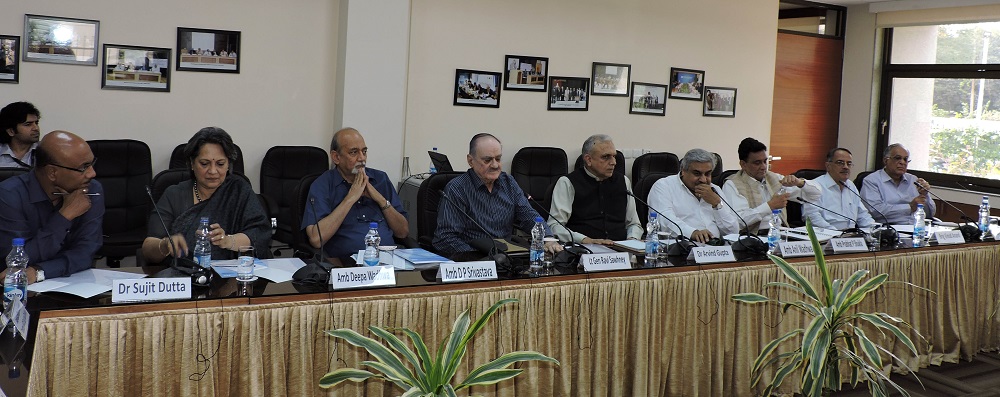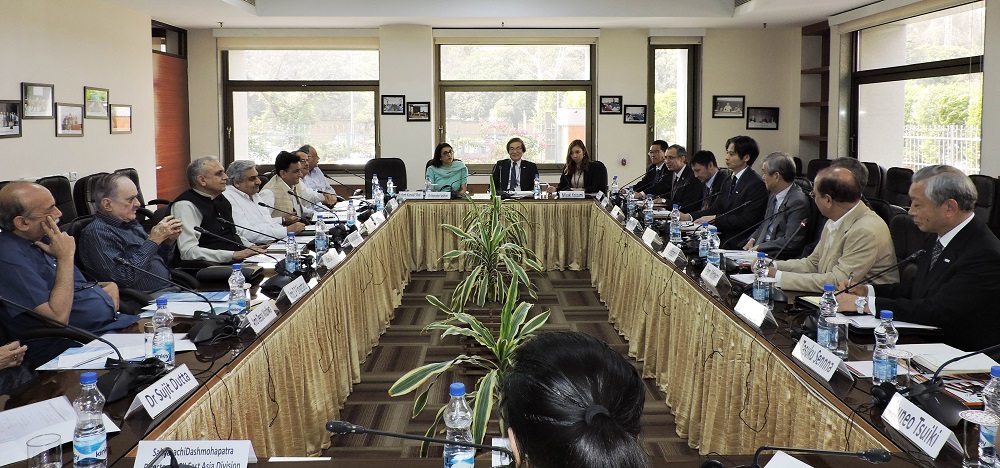

The Vivekananda International Foundation (VIF) hosted a distinguished delegation from India-Japan Friendship Exchange Council (FEC) from Tokyo during their 11th visit to India. The delegation was led by Mr Kenichi Watanabe, Vice Chairman of FEC, Senior Advisor to the Board and Former Group CEO of Nomura Holdings, Inc. The interaction explored various facets of current global, regional and bilateral dynamics between India and Japan. Some of the salient points discussed are described below.
Possible Japan-China Detente
Chinese President Xi Jinping emerging as the "President for life" in China has long term implications for many countries. Japan is keen on improving ties with China along with strengthening its relations with partners and other countries. With 2018 being the 40th year of the Peace Treaty between Japan and China, many bilateral agreements are lined up. Japan wants to help reshape China’s grand strategy in a positive direction. It wants to help bring the Belt and Road Initiative to meet international norms in finance and transparency and not create debt trap situations as in Sri Lanka.

US’s Security Commitment to Asia-Pacific
There are still concerns regarding the new US administration’s commitment to security in the Asia-Pacific despite its reiterations. Though Japanese PM Abe has a strong working relationship with US President Trump, Trump’s constant flip-flopping along with the stability of his administration raise apprehensions.
North Korean Belligerence
The security environment around Japan has become very tough. Though it may not be a widely held public opinion, North Korea will not attack South Korea due to shared ethnicities and brethren feeling. Thus, its wide scale development of both short and long range missiles may possibly be directed towards Japan, the pivot of US presence in the region. Abe is expected to meet Trump in April 2018 before a probable Trump- Kim Jong Un summit to convey Japanese concerns.

Trans-Pacific Partnership (TPP)
Though the TPP was conceived as a Trans-Pacific regional trading agreement, its doors are open for India or any other interested countries to join in. After US withdrawal, TPP was agreed upon by the remaining 11 countries (Australia, Brunei, Canada, Chile, Japan, Malaysia, Mexico, New Zealand, Peru, Singapore and Vietnam) in March 2018. Japan has sought to accelerate the ratification procedure which is expected by September 2018. The new TPP-11 requires ratification by only six countries to come into effect. The TPP-11 remains an advanced economic agreement with Intellectual Property Rights and Investor Stake Protection clauses. In comparison, the Regional Comprehensive Economic Partnership (RCEP) agreement remains limited in scope even if signed.
Working together in Africa
Japan’s engagement in Africa is not expansive. It had sought cooperation with earlier colonial powers (UK and France). Thus, it is enthusiastic in partnering with India which has better ties and working relations with the African countries. The Japan International Cooperation Agency, JICA, is presently planning several projects. Japan seeks to work with India not just in Africa, but also Central Asia and other regional countries. On the Indian issue of developing shipping connectivity to Africa, the Japanese side noted their assistance to ASEAN Connectivity in line with Master Plan on ASEAN Connectivity (MPAC) 2025.

India-Japan Bilateral Economic Engagement
Both sides agreed that any strategic partnership needs to be buttressed by a strong economic engagement and that India-Japan’s current economic engagement remains below potential. While special initiative such as ‘Japan Plus’, a single stop to getting business clearance in India, was appreciated, issues were raised with the time delay that still ran into around three years. Issues were also raised on the inability of Japanese small and medium sized enterprises’ inability to enter Indian market due to the high-interest Rupee denominated loans. Further concerns were regarding the complexities of the newly introduced Goods and Services Tax (GST) and Land Acquisition Act in India.
Regarding the Shinmaywa US-2 amphibious aircraft deal falling through, the Japanese side stated that the question was primarily of commercial viability as Shinmaywa is a medium sized enterprise that cannot assemble the final product. On the Indian issue of technology transfers, the Japanese side mentioned that Indian manufacturing sector has yet to take off. Once the Indian industry reached a certain technological threshold, technology transfers will be inevitable exchanges.
Links:
[1] https://www.vifindia.org/event/report/2018/march/28/interaction-with-india-japan-friendship-exchange-council
[2] http://www.facebook.com/sharer.php?title=Interaction with India-Japan Friendship Exchange Council (FEC) Delegation from Tokyo, Japan&desc=&images=https://www.vifindia.org/sites/default/files/DSCN1641.JPG&u=https://www.vifindia.org/event/report/2018/march/28/interaction-with-india-japan-friendship-exchange-council
[3] http://twitter.com/share?text=Interaction with India-Japan Friendship Exchange Council (FEC) Delegation from Tokyo, Japan&url=https://www.vifindia.org/event/report/2018/march/28/interaction-with-india-japan-friendship-exchange-council&via=Azure Power
[4] whatsapp://send?text=https://www.vifindia.org/event/report/2018/march/28/interaction-with-india-japan-friendship-exchange-council